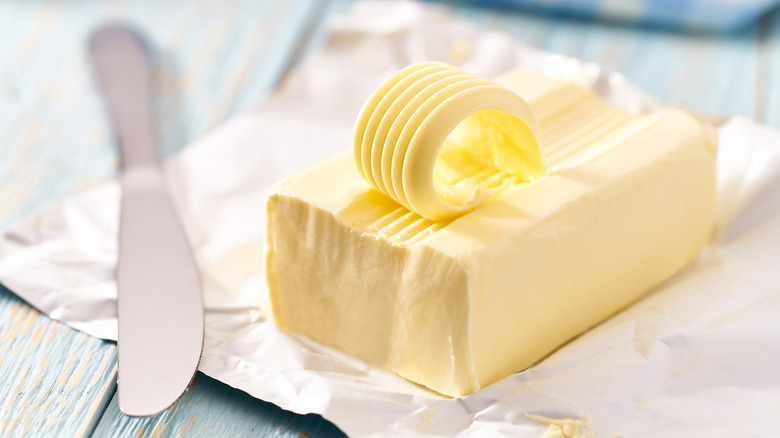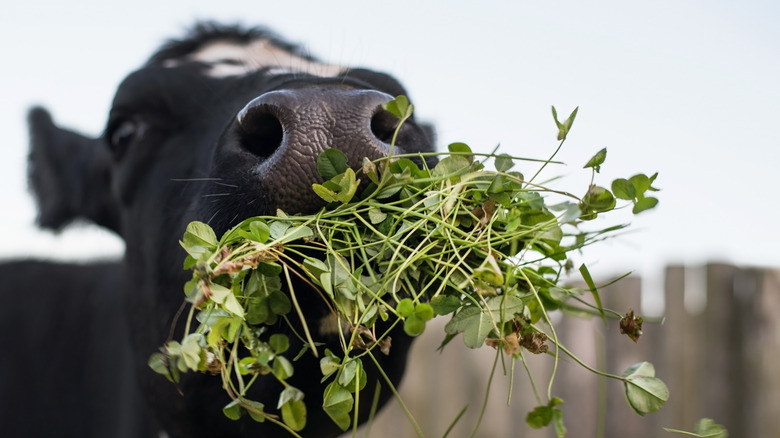Why Milk And Butter Are Getting Even More Expensive
Grocery shopping these days is not for the faint of heart thanks to skyrocketing food prices. Meats, like beef and pork, as well as poultry and eggs are all ringing up much higher than normal. In fact, consumers can expect to pay an average of 14.2% more on these items than they did this time in 2021, according to Yahoo! Finance.
It's not even good news if those items aren't your jam. In-home eating across the board has risen in cost by 10.8%, the largest price jump since 1980, says U.S. News & World Report. So, if your family normally spent $1,000 per month on groceries in less expensive times, you're probably over the $1,100 mark at this point.
Unfortunately for fans of dairy products, the news is about to get worse, as the price of milk and butter is inching ever higher thanks to many factors that are largely outside of consumer control.
Here's why milk and butter are getting pricier
Thanks to historic inflation, the cost of just about everything is going up these days. Raw milk has not escaped this fate, since the cost of feeding, buying, and caring for cattle is through the roof, Food Dive says. In fact, raw milk is selling 47.3% higher than 2021, says U.S. Bureau of Labor Statistics. Since dairy products are made using raw milk, this price uptick is being felt across the board.
Wondering how to offset these rising costs? Food Dive notes that many customers will probably make the switch to butter alternatives, such as shortening or margarine. Or, they may abandon longtime name brand favorites in favor of budget store brands. For example, one pound of Land O Lakes salted butter currently retails at Target for $4.99, but the same amount of their Good & Gather brand costs only $3.69 at the same location.
Sadly, Food Dive also reports that the forecast is unfavorable for cheese manufacturers, who also rely on milk to make their products. Since butter-making needs are pulling more milk that way, cheesemakers are likely to experience a supply pinch, if they aren't already. So, maybe don't be shocked if cheese prices continue to jump, as well. Sad, maybe. But not surprised.

